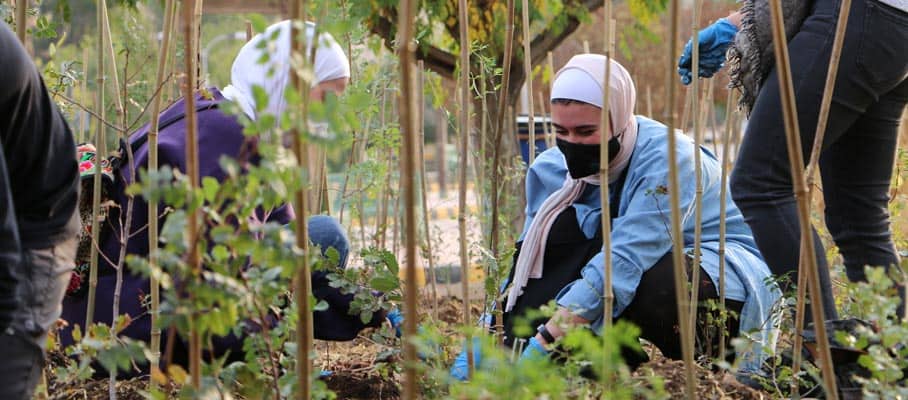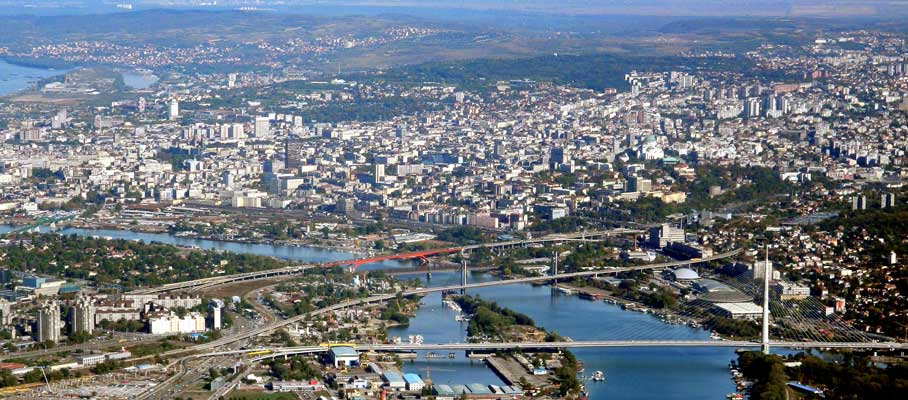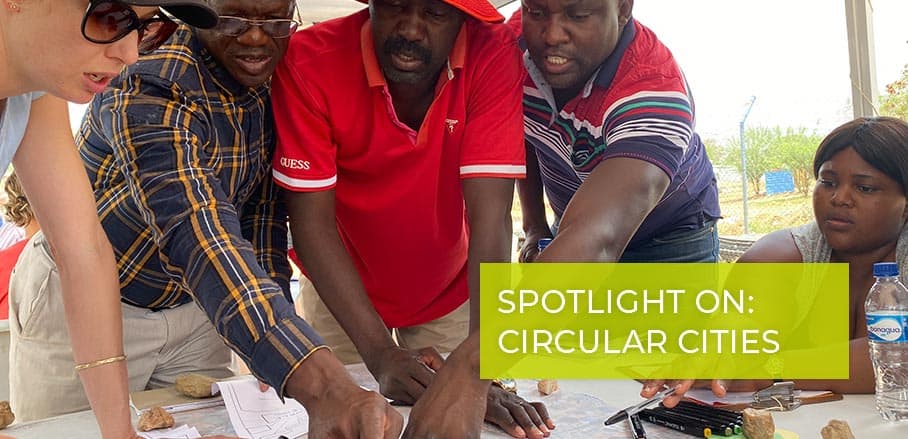Cities CHALLENGE: What Does a Sustainable and Resilient Community Look Like?
Accompanying the launch of the GIZ Cities CHALLENGE interactive ePaper, Andrea Renger, David Stoffel, and Anastasiya Shadkhina present key facts from the ideas competition and emphases cities’ critical role in advancing global agendas.
Cities CHALLENGE: 2030 Agenda Meets Urban Climate Action
Cities play a crucial role in the implementation of global development and climate agendas. Studies show that two-thirds of all Sustainable Development Goals (SDGs) set out in the 2030 Agenda can only be achieved with cities. Thus, the importance of urban development goes beyond SDG11 for sustainable cities and communities. For this, cities must be planned and built in an integrated way to be inclusive, safe, resilient, and sustainable. With the ideas competition Cities CHALLENGE 2030, launched in 2019, GIZ showcased examples around the world of what this can look like in action. From more than 30 applications for the competition, GIZ together with BMZ, selected four Urban Living Labs as winners.
The projects are located in Ecuador, Jordan, Namibia, and Serbia respectively. The project in Ecuador aimed to strengthen local resilience and security and improve the quality of public spaces by implementing nature-based solutions. In particular, female leaders in the community organisation “Guardians of the Hills” in Sao Pablo, Portoviejo should be promoted. The “Urban Micro Lungs” project is located in Amman, Jordan. The project aimed to improve living conditions in dense and deprived urban areas by jointly creating small forest patches using the innovative Miyawaki method. These densely planted “lungs” should also contribute to the improvement of urban ecosystems.

Community planting urban micro-forests in Amman © TAYYUN Studio
In Namibia, a participatory and climate-sensitive urban planning process was to be carried out in Onyika, a former informal settlement in the outskirts of Windhoek. In particular, awareness of climate risks was to be raised. At the same time, construction measures were conducted to increase the resilience of the community. In Serbia, the project “Food Shifters” on urban food security and management was implemented. This project established a digital platform to improve processes in small and medium-sized enterprises as well as restaurants and redistribute food among the citizens, thus contributing to the reduction of emissions and landfill of food waste in Belgrade on the one hand, and addressing the challenge of food security on the other.

City of Belgrade © GIZ Serbia
The Vision of the Cities CHALLENGE
The overall vision of the Cities CHALLENGE is to invite GIZ projects in partner countries of German Development Cooperation to submit ideas for urban projects together with local partners on how global development and climate goals can be implemented locally. The winning ideas receive a funding for implementing such small-scale projects at local level and serving as so-called “Urban Living Labs”.
For this, projects were chosen which also showed the potential to be replicated on a larger scale and in different regional contexts afterwards. The diversity of urban issues and approaches, such as infrastructure, public spaces, and food security, made it possible to address numerous stakeholders and build partnerships. Through these partnerships, challenges at different levels of urban planning and construction, municipal finance, and governance could be addressed.
The main criteria for the call for proposals were a place-based and people-centred approach, working with partners on national, regional, and local level and special consideration of gender equality and digitalisation. Further criteria were, as already mentioned, the potential for future expansion of the projects, as well as ensuring local ownership. Thus, all projects in their entirety constitute valuable learning experiences for GIZ, BMZ, and beyond.
What are Urban Living Labs?
Four innovative approaches were promoted and funded through the Cities Challenge. These interventions promote participatory and multidisciplinary ways of working. Workshops, awareness-raising activities, and small-scale construction measures form a diverse range of interventions that could be implemented for the sustainability of local neighbourhoods through the Cities Challenge.
The immersion in practice was intended to be a reality check in which the guiding principles of German Development Cooperation were tested on the basis of local projects. This learning process was not only intended to test concrete methods, but also to illustrate the importance of urban strategies for the implementation of SGDs.
The balanced regional distribution of the four Urban Living Labs made it possible to address very different challenges, with different approaches to integrated urban development.
The Documentation of the Learning Experiences Resulting in an ePaper
The final documentation of the Cities Challenge 2030 was published in form of an interactive ePaper. The ePaper shows on the one hand the results of the ideas competition, but on the other hand also the lessons that can be learned from them. The paper is divided into three parts. The first part presents the background of the Cities Challenge 2030. Here you will find details on the ideas competition and the selection process. In the second part, the four Urban Living Labs in the countries mentioned are presented. The last part evaluates the learning experiences from the projects and reflects on the importance of urban strategies to meet the global development and climate goals. The ePaper is an interactive document with many exciting clickable links and visualisations augmenting the content and representing metaphorically the innovative approach of the projects. Check out the ePaper here.
The Way Forward: Cities CHALLENGE 2.0 – Building Vibrant and Resilient Neighbourhoods
In summary, the CitiesChallenge 2030 has made BMZ’s guiding principles for sustainable and climate-friendly urban development both visible and tangible. It illustrated the vision of a city worth living in. At the same time, the lessons learned for each Urban Living Lab will continue to contribute to policy development. These learnings make the range of services offered by German Development even more needs-, implementation-, and impact-oriented.
Based on these experiences, the Cities CHALLENGE 2.0 was launched in May 2021 with the motto ‘Building Vibrant and Resilient Neighbourhoods’. Once again, experimental Urban Living Labs will be implemented in cities in Bangladesh, India, Mexico, and South Africa that are home to BMZ-funded projects. They will be geared towards partner needs, focused on flexible and efficient implementation, and will work in close coordination with existing country strategies and funding priorities. With this second Cities CHALLENGE, GIZ intends to further expand and strengthen urban development in German Development Cooperation in line with the priorities of the Reform Strategy ‘BMZ 2030’. Check out updates for the upcoming Cities CHALLENGE here.
